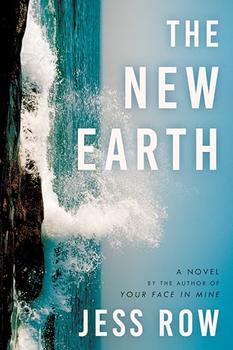Summary | Excerpt | Reviews | Beyond the Book | Readalikes | Genres & Themes | Author Bio

A Novel
by Jess Row
So many satisfactions to be had in the brief obituary, the column stub, the quick take. No mention of Davenport, for instance. None of the nubby words that make up his version of the 1970s, like Oberlin or Zen master or Vermont. A slightly longer version would have to take in some of those uncomfortable lacunae. Decades of psychotherapy and a few years of outright analysis. Too predictable. Survived by his wife, Naomi, fellow-sufferer in a disastrous marriage. Too gloomy; too much like a Puritan epitaph. Where's the spanner to throw in the works?
Naomi Schifrin Wilcox, whose biological father was the African American physicist John Downs, a fact she only confessed to her children in December 2001, in a Chinese restaurant on Sixty-Ninth Street—
No. Too much of a tangent.
Saved an unhappy marriage through decades of masturbation.
Too general; too pathetic; needs nuance.
Benefited from his sole experience with hallucinogens.
In San Francisco, in 1976, they had a friend named Dallas Goodyear. It's a good story to think about now, traveling in the bardo of the subway, the birth or death canal, the liminal zone. Dallas was the first Black philosophy professor hired at Berkeley, also the first in non-Western philosophy, which meant he was responsible for everything from Avicenna to Zoroaster, though his own field was comparative shamanism. He'd done fieldwork in Korea and Peru. You met these people in the seventies: actual ostensible Americans who seemed like emissaries from a different planet. A few years later Dallas's appointment was moved to Ethnic Studies and he quit in protest and moved to Chicago to teach at UIC, but for that year he was still an actual Berkeley professor: a tiny impish man, his hair bound up in a single long braid down his back, who wore only white clothes and no shoes. Sometimes the three of them drove out to the valley on weekends, canvassing farmworkers; Dallas spoke beautiful Spanish but could also get by in Mam and K'iche' and several other Indigenous languages. Dallas playing with six kids in the wretched thin shade outside a tar-paper shack on an unnamed dirt road ten miles east of Fresno, across from twenty acres of lettuce, the irrigation sprinklers pumping chemicals in a fine rainbow mist every fifteen minutes. Learning all the kids' names, tickling them, singing them folk songs from Puebla. Then climbing back into the cab of the United Farm Workers pickup and taking out a stack of papers on Descartes to grade.
Did he and Naomi have any idea, even then, how bad, how shameful, how isolated, things would get in their world, racially speaking? He loved Dallas. And was in awe of him. There's no right order for those sentences: each precedes the other. He had never had a Black man as a personal friend, an intimate friend. And—this is the horror of it—never would again. The ghost of a father-in-law didn't count. In the great racial retrenchment of the early eighties they lost touch with everyone: Shirl Watson, Naomi's classmate at Berkeley, who dropped out before finishing her research to teach high school in Oakland. Damon and Charles from Boalt. Fred Paul, who played the clarinet at their wedding. The Apthorp, when they moved in, had a grand total of three Black families. By 1990 it was down to one. After the Central Park Five were convicted—those nightmarish years, the absolute nadir, Howard Beach Tawana Brawley Crown Heights—Bering looked across the dinner table at them and said accusingly, You guys have no Black friends at all.
What was he supposed to say? There's always your grandfather? We are our own Black friends?
Having that thought makes his skin flex and contract, an unwatered cactus.
Dallas liked to laugh and slap him on the thigh. There was one Spanish radio station in the valley, KLT or KLP, and he played it loud, with the windows open, putting his arm around Sandy's shoulders and insisting that they sing along. You want to know people, you have to get to know their songs, he said. Dallas's hot meaty breath in his ear, as they rolled under that flat summer sky the color of jaundice. Everything felt necessary and significant under Dallas's eye. That was the thing. He felt, maybe for the first and last time, seen.
Excerpted from The New Earth by Jess Row. Copyright © 2023 by Jess Row. Excerpted by permission of Ecco. All rights reserved. No part of this excerpt may be reproduced or reprinted without permission in writing from the publisher.




The only completely consistent people are the dead
Click Here to find out who said this, as well as discovering other famous literary quotes!
Your guide toexceptional books
BookBrowse seeks out and recommends the best in contemporary fiction and nonfiction—books that not only engage and entertain but also deepen our understanding of ourselves and the world around us.